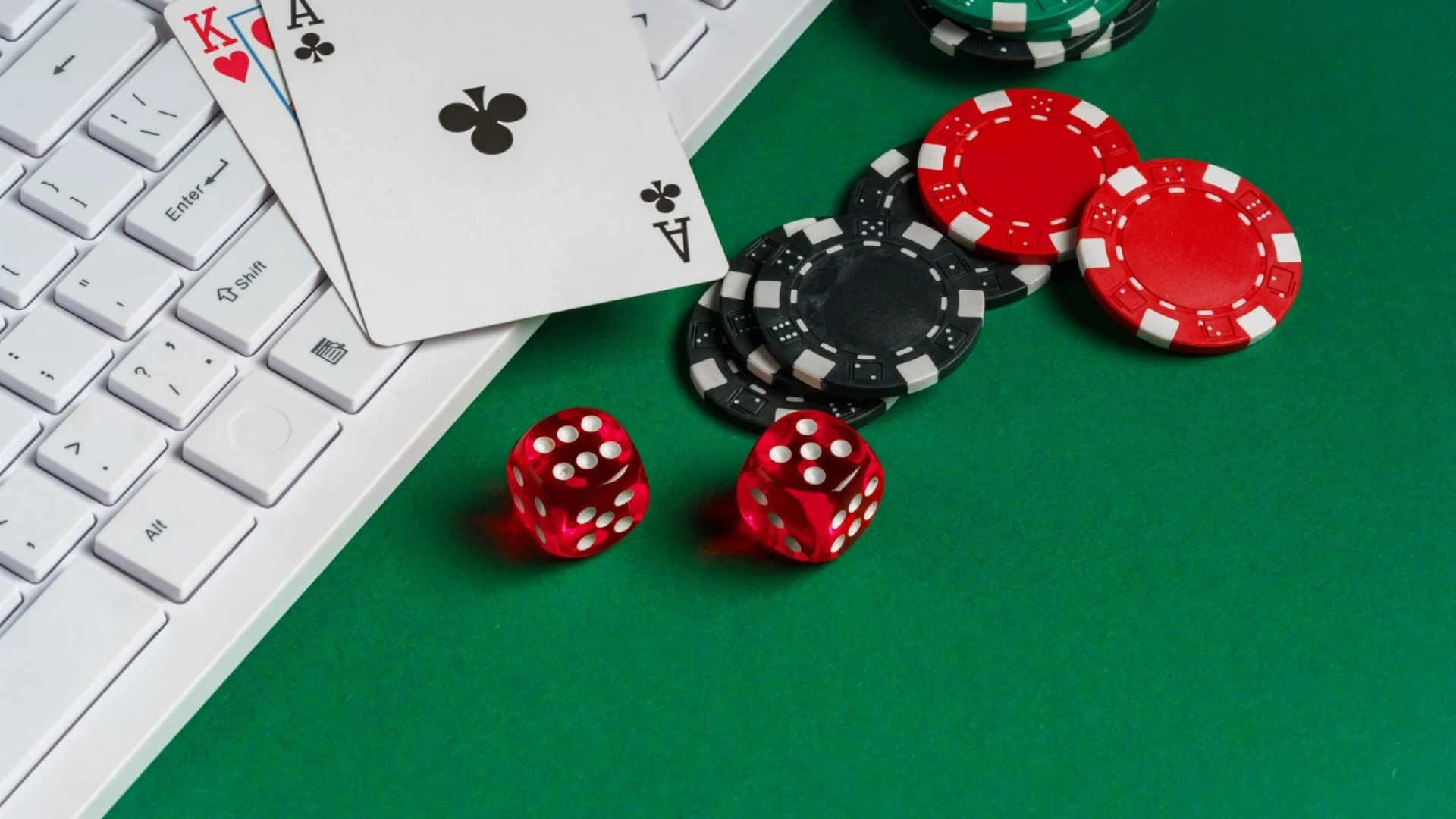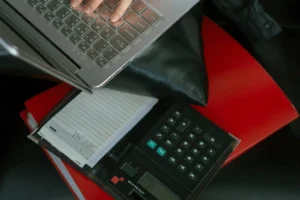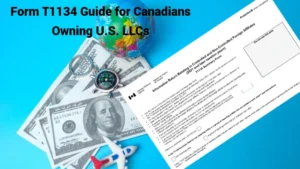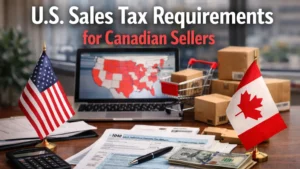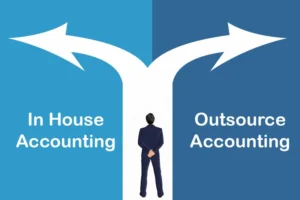Imagine you win a $10,000 jackpot in Las Vegas, but the casino gives you only $7,000 because the IRS withholds 30%. That’s a big portion of your winnings. Every year, about 2-3 million Canadians visit U.S. casinos, leaving $150 million in taxes with the IRS. Unfortunately, 90% fail to claim refunds, missing out on $142.5 million. You can avoid this mistake.
This guide explains how the U.S. taxes gambling winnings, what you owe in Canada, and how to recover withheld taxes. Whether you’re a casual player in Atlantic City, a frequent gambler making regular U.S. trips, or a professional poker player, we provide clear steps to help you avoid double taxation. Stay with SAL Accounting to keep more of your winnings.
Quick Takeaways
- U.S. Taxes: IRS takes 30% on most U.S. gambling winnings (e.g., slots over $1,200); file Form 1040-NR to recover a big portion.
- Canadian Taxes: Canada skips tax on casual winnings; pros report income and claim U.S. tax credits.
- Tax Treaty: Canada-U.S. Treaty allows deducting U.S. losses from winnings, cutting or eliminating taxes.
- Action Steps: Log wins/losses, get ITIN, file 1040-NR by June 15, claim refunds up to three years.
US Tax on Canadian Gambling Winnings
When you win cash gambling in the U.S.—on slots, lotteries, or poker tournaments—the IRS usually takes 30% right away if you’re Canadian. It has certain limits, which depend on the game. The U.S. sees these winnings as income you need to pay tax on.
| Game Type | Withholding Threshold |
| Slots or Bingo | $1,200 or more |
| Keno | $1,500 or more |
| Poker Tournaments | $5,000 or more |
| Lotteries or Sports Bets | $600 or more (if 300× wager) |
Note: The IRS taxes every win, but they only take money upfront if you hit these limits. For example, if you score $2,000 on slots in Las Vegas, the IRS keeps a big portion of $600, leaving you with $1,400.
Games Free from Federal Tax
Some games skip U.S. federal tax for Canadians. Blackjack, baccarat, craps, roulette, and Big-6 wheel winnings stay tax-free. If you win $5,000 at blackjack, you keep every dollar.
Extra State Taxes
Certain states tack on their own taxes for gambling winnings:
- New York applies an 8.82% tax ($882 on a $10,000 win).
- California applies a 5-8% tax, depending on the amount.
- Nevada, including Las Vegas, has no state income tax, so you only deal with the federal 30%.
Documentation for Refunds
Casinos give you a Form W-2G or 1042-S to help with refund claims, showing your winnings and the taxes taken out.
Pro Tip: Grab a duplicate W-2G or 1042-S before you leave the casino, as getting copies later can be tricky.
Are US Gambling Winnings Taxable in Canada?
Canada’s tax rules for gambling winnings are simpler than the U.S., but what you owe depends on whether you gamble for fun or as a job.
Casual Gambler Rules
If you gamble for fun, like on a Vegas trip or now and then, Canada doesn’t tax your winnings, thanks to the Income Tax Act (Paragraph 40(2)(f)). A $50,000 jackpot stays tax-free, and you don’t need to report it.
Professional Gambler Obligations
If gambling is your main job, like for a pro poker player, the CRA sees your winnings as business income and taxes them in Canada. You report your earnings, figured as winnings minus losses, on a T1 return and use Form T2209 to claim a tax credit for U.S. taxes paid, so you don’t get taxed twice.
The table below shows how the U.S. and Canada handle taxes for casual and pro gamblers:
| Aspect | Casual Gambler (U.S.) | Casual Gambler (Canada) | Professional Gambler (U.S.) | Professional Gambler (Canada) |
| Tax on Winnings | IRS withholds 30% | Tax-free | IRS withholds 30% | CRA taxes as business income |
| Reporting Required | You file 1040-NR for refund | None | You file 1040-NR for refund | You report on T1 return |
| Loss Deductions | Treaty allows deductions | N/A | Treaty allows deductions | You deduct as business expense |
| Tax Relief | You claim refund via 1040-NR | N/A | You claim refund via 1040-NR | You claim foreign tax credit (T2209) |
CRA Oversight and Compliance
The CRA keeps an eye on gambling income by sharing info with the IRS:
- The IRS and CRA swap data under the Canada-U.S. Tax Treaty.
- If you report U.S. winnings to the IRS, the CRA might find out, especially if you’re a pro.
- You need to report taxable income in Canada to stay on the right side of the rules.
Example: Jane, a casual gambler, wins a $50,000 Vegas jackpot. She owes no Canadian tax and skips reporting. Alex, a pro poker player, nets a big portion of $20,000 in U.S. tournaments. He reports this as income in Canada and uses a $6,000 U.S. tax credit to cut his Canadian tax.
How Does Tax Treaty Save You Money in Tax Gambling?
The Canada-U.S. Tax Treaty (Article XXII) puts more cash in your pocket. You can take away your U.S. gambling losses from your winnings when you fill out a U.S. tax form. That way, you only pay tax on the money left over. If you lose as much as or more than you win, you might get back all the 30% the IRS took.
How It Works: The treaty lets you lower your U.S. taxes by taking losses off your winnings, so you’re only taxed on what’s left. Here’s how it goes:
- Let’s say you win $10,000 on slots but lose $8,000 on other games. You’re left with $2,000, so the U.S. tax is $600 (30% of $2,000). If the IRS took $3,000, you get a $2,400 refund.
- If you lose $10,000 or more, you’re left with nothing. You owe no tax and could get the full $3,000 back.
Why It Matters: If you don’t send in a U.S. tax form, the IRS keeps the whole 30% they took, even if you lost a big portion. The treaty helps you get a fair refund, so you don’t miss out on money you should keep.
Example: Bob wins $15,000 on slots, and the IRS grabs $4,500. He loses $12,000 on other games. He sends in a U.S. tax form, shows he’s left with $3,000, and owes $900 in tax. He gets a $3,600 refund ($4,500 – $900).
- Read more: “7 Canada US Tax Treaty Benefits You Need to Know”
Steps to Claim Back US Taxes on Canadian Gambling Winnings
Here are five easy steps to fill out a U.S. tax form and get your refund.
Step 1: Gather Your Records
Grab your Form W-2G or 1042-S from the casino. Keep a log of your gambling, jotting down the date, place, game, and how much you won or lost. Save ATM receipts, player’s club statements, or photos of big wins to back up your losses.
What to Track:
- Date and place of each gambling session.
- Game you played, like slots or poker.
- Amount you won or lost each time.
- Receipts, tickets, or photos as proof.
Pro Tip: Check your casino player’s club account for a win/loss statement. Lots of casinos have these online or at the front desk.
Step 2: Get an ITIN
You need an Individual Taxpayer Identification Number (ITIN) to send in a U.S. tax form, since Canadians don’t usually have a Social Security Number. Fill out Form W-7 and send it with your tax form. It takes 7-11 weeks to process, so don’t wait around. Some tax pros are IRS Certifying Acceptance Agents who can check your ID without needing your original documents.
Pro Tip: Kick off your ITIN application early to hit the filing deadline.
Step 3: File Form 1040-NR
Send in Form 1040-NR, the U.S. tax form for nonresidents. On Schedule NEC (Line 10, for Canadians), list your winnings and losses. Attach your W-2G or 1042-S to show the taxes taken out. You can add Form 8833 to point out the treaty benefit, but you usually don’t need it. Get this done by June 15 of the next year. Need non-resident tax filing assistance? We can help.
Filing Tips:
- Put all your U.S. trips into one form to save time.
- Pro tax help costs $300-800, so make sure your refund is worth it.
- Double-check Schedule NEC to avoid mistakes.
Step 4: Claim Past Years
You can get refunds for up to three years back. For example, you can claim winnings from 2022 until June 15, 2026. Look through old records and file for any year the IRS took taxes.
Pro Tip: Dig through old casino receipts or bank statements to spot past winnings you can claim.
Step 5: Get Help if Needed
For big winnings or tricky cases, our cross-border tax experts can handle the paperwork. This keeps things accurate and helps you get the most back.
Watch Out for These Mistakes
Steer clear of these common slip-ups to keep your refund safe.
Missing Records
If you don’t have proof of your losses, the IRS might say no to your refund. No receipts? You can use player’s club statements, a personal log, or bank records. Any proof is better than nothing.
Pro Tip: Snap a quick photo of your slot machine screen or betting slip for every big win or loss to have proof handy.
Using the Wrong Forms
Sending the wrong form, like Form 1040 instead of 1040-NR, or forgetting Schedule NEC can hold up or cancel your refund. You need to use Form 1040-NR for nonresidents and include Schedule NEC for your gambling income.
Pro Tip: Grab the IRS’s 1040-NR instructions online to make sure your forms are right.
ITIN Delays
Waiting too long to apply for an ITIN might make you miss the June 15 deadline. Apply early, or get an IRS Certifying Acceptance Agent to speed things up.
Example: Bob applies for an ITIN in May and misses the June 15 deadline, pushing his $4,000 refund back a year.
Misclassifying Your Status
If you’re a pro gambler but say you’re a casual one, the CRA might check you for not reporting income. Pros have to report winnings as business income in Canada and claim U.S. tax credits.
Pro Tip: If gambling’s your main job, talk to a tax pro to double-check your status before filing.
Ignoring Online or Crypto Winnings
U.S.-based online gambling sites take the same 30% as regular casinos. Crypto winnings are trickier since the IRS sees them as property, so you might need to report both the gambling cash and any value changes. Stay on the right side of the rules by getting pro advice.
Example: Jane wins $5,000 on a U.S. online casino. She files a 1040-NR to get back the $1,500 taken out, just like with in-person winnings.
Example Tax Scenarios: Taxes in Action
Let’s see how these tax rules work for people, with our SAL Accounting team performing the filings.
Casual Vacationer: Jane’s Story*1
Jane lands a $15,000 slot jackpot on her dream Vegas vacation but loses $12,000 on other games. The casino holds back $4,500 for the IRS. SAL Accounting files a tax form for Jane. Here’s the math:
- $15,000 (win) – $12,000 (loss) = $3,000 left
- $3,000 × 30% = $900 U.S. tax
- $4,500 (IRS took) – $900 = $3,600 refund
Back in Canada, Jane does not owe any tax since she is a casual gambler.
Frequent Gambler: Bob’s Story*2
Bob, a Vegas fan, racks up $20,000 in wins over three trips but loses $15,000 along the way. The IRS takes $6,000. SAL Accounting files one tax form for all his trips. Here’s how it adds up:
- $20,000 (win) – $15,000 (loss) = $5,000 left
- $5,000 × 30% = $1,500 U.S. tax
- $6,000 (IRS took) – $1,500 = $4,500 refund
Canada does not tax him since he is not a professional gambler.
Professional Gambler: Alex’s Story*3
Alex, a poker enthusiast, ends up with $20,000 from U.S. tournaments after winning $120,000 and losing $100,000. The IRS holds back $36,000. SAL Accounting files a tax form for Alex. Here’s the breakdown:
- $120,000 (win) – $100,000 (loss) = $20,000 left
- $20,000 × 30% = $6,000 U.S. tax
- $36,000 (IRS took) – $6,000 = $30,000 refund
In Canada, Alex lists his $20,000 as business income, and SAL Accounting applies a $6,000 U.S. tax credit to lower his Canadian taxes.
Conclusion
Hitting a jackpot in a U.S. casino is super exciting, and a few smart tax moves can put more money in your wallet. The IRS takes 30% of your winnings, but the Canada-U.S. Tax Treaty lets you get a big portion back by filling out a tax form. If you gamble just for fun, Canada doesn’t tax your winnings at all. Pros can use tax credits to make sure they don’t pay twice.
Don’t let that refund slip through your fingers, File your tax form within three years, and if you hit a big win, reach out to SAL Accounting for expert tax help. With $142.5 million left unclaimed every year, you don’t want to miss out. Grab a free consultation and keep more of your winnings now.
FAQ: Quick Answers to Your Questions
Yes, the IRS withholds 30% on most winnings (like slots or lotteries) above thresholds like $1,200. You can recover some or all by filing a tax return.
File Form 1040-NR with Schedule NEC, list winnings and losses, include Form W-2G/1042-S, and get an ITIN with Form W-7. You can claim refunds for up to three years.
Canada does not tax casual winnings. Professionals report winnings as business income but can claim U.S. taxes as a credit.
Yes, the Canada-U.S. Tax Treaty lets you deduct losses. If losses equal or exceed winnings, you may recover the full 30% withheld.
Use Form 1040-NR (with Schedule NEC) for winnings/losses, apply for an ITIN with Form W-7, and attach W-2G/1042-S for proof.
Yes, the treaty allows you to deduct U.S. losses up to your winnings on Schedule NEC, reducing or eliminating your U.S. tax.
Disclaimer: Results may vary; no guarantees; services provided from a Canadian perspective only; consult for your unique situation.
